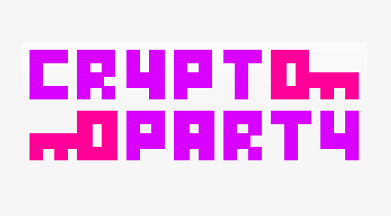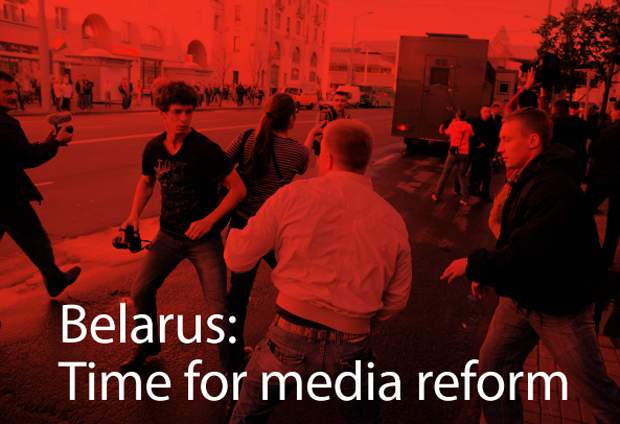6 Feb 2014 | Events

Join English PEN and Open Rights Group on a day of global protest against mass surveillance, as civil liberties groups and activists around the world unite to defend privacy and freedom of expression online. With keynote speakers and tech experts to advise you on your privacy and security online.
Since Edward Snowden’s first revelations about the National Security Agency’s collection of US data last summer, the British public has witnessed a series of alarming disclosures regarding the extent of the surveillance programmes operated by US and UK intelligence services.
Guest speakers from leading privacy, freedom of expression and human rights groups in the UK will announce a new coalition, Don’t Spy On Us, calling for legal reform and judicial oversight of the intelligence service’s mass surveillance programme.
This event is FREE, with a bar, live demonstrations and keynote speakers.
When: Tuesday 11th February, 7:00pm onwards
Where: Free Word Centre, EC1R 3GA
Tickets: FREE but Reserve your tickets
Presented by

6 Feb 2014 | Digital Freedom, Iran, Middle East and North Africa, News and features
The idea of blogging and social media in Iran was once likely to invoke images of the 2009 Green Movement, where these platforms played a part in regular people standing up to a repressive, conservative regime, calling for reforms and demanding civil liberties. These days, it may be more linked with the country’s political elites, who really seem to have taken to communicating through Twitter and Facebook — sites now blocked for most of the population.
But while it was perhaps always expected that tech-savvy, reformist activists would find ways around the social media censorship, it may come as a surprise that some of Iran’s most conservative do the same.
A new report by Small Media sheds light on the Arzeshi, a hardline, conservative faction of online activists, devoted to the principles of the 1979 revolution and the supreme leader. The report found that the Arzeshi work around online restrictions, appearing on banned sites. In particular, the report looks at blogs and Google+, and analyses the activity of 75 Arzeshi accounts on Twitter — a site that, bar a technical glitch last September, has been blocked in Iran since 2009.
However, while the government claims to have a huge number of online supporters, the report tells a different story. Far from being an active, viral network, “the vast majority” of Arzeshi sites “were poorly-connected, hardly-read, and contained unoriginal content pasted from other sites.”
James Marchant, Small Media’s Research Manager, said: “This report is the first piece of in-depth research to illustrate the reality of Iran’s secretive community of online conservative activists. It shows that contrary to all government claims, the Arzeshi community is actually very fragmented and inward-looking – it is a long way from the energetic activist army touted by senior Iranian officials.”
This article was originally published on 6 February 2014 at indexoncensorship.org
6 Feb 2014 | Palestine, Politics and Society
Israeli authorities have told a Palestinian TV station to stop broadcasting amid claims it was disrupting Israeli television broadcasting.
Sheraa TV, a local news station in the city of Tulkarem, had received several notices from the Israeli authorities to immediately stop broadcasting otherwise they would take action and force its closure.
The Israelis originally claimed that Sheraa TV’s broadcasting was disrupting communications, in particular those at Israel’s major international airport. However, after the TV station consulted with technicians from the Palestinian ministry of communications, who confirmed their devices were not causing any interference, the Israeli authorities then said the interference was affecting TV networks instead.
Mohamed Zeidan, Sheraa TV director general, told the Palestinian Center for Development and Media Freedoms (MADA): “We have taken the decision to stop broadcasting two days ago until we find a solution to this issue, because it is no stranger to the occupation authorities to raid media outlets and confiscate broadcasting equipment, which cost us a fortune.”
According to a report by MADA between 2008 and 2012 Israeli authorities targeted media outlets on a number of occasions.
The MADA has since called upon all countries and human rights organisations to pressure Israel into respecting freedom of expression and to commit to the international laws and agreements signed with the Palestinian National Authority.
6 Feb 2014 | Belarus, Campaigns, Index Reports
In a new policy paper, launched today in Minsk, Index on Censorship calls for the much-needed reforms of the media field in Belarus.
Belarus continues to have one of the most restrictive and hostile media environments in Europe. Recent years have brought no genuine improvements to the media situation. In a country that has not held a free and fair election since 1994 the authorities keep tight control over the media as a means of preserving their power.
The new report Belarus: Time for media reform says the country’s media market is strictly controlled by the Belarusian government. That control rigs the media market to benefit state-owned providers and impedes the development of independent print and television outlets through legislative and administrative restrictions. The state-owned media enjoys significant budget subsidies, favourable advertising and distribution contracts with government agencies. In comparison, independent publications face economic discrimination and distribution restrictions.
The police use violence and detain journalists, especially those who cover protests.
8 February 2014 will mark the 5th anniversary of the current media law in Belarus. Restrictive media legislation and its oppressive implementation have made the media landscape unfavourable for freedom of expression.
Andrei Bastunets, a vice chairperson of the Belarusian Association of Journalists, and a co-author of the report, said:
“The media law in Belarus fails to foster the development of pluralistic and independent news media through a complicated procedure of compulsory registration of new media outlets and possibilities for the state to close down existing media even for minor infringements. The authorities clearly look into expanding the restrictive regulation to online news media.”
Despite ongoing pressure by international community and Belarusian civil society, the authorities of the country have been quite reluctant to discuss or implement recommendations on media legislation or changes in practices of their implementation to bring them in line with international standards.
Andrei Aliaksandrau, Index Belarus Programme Officer, said:
“We urge the Belarusian authorities to immediately remove all contraventions of human rights and media freedom. The much-needed reforms of the media field should be launched in order to end harassment and persecution of journalists, and eliminate excessive state interference in media freedom. The outline of these reforms should result from a dialogue with professional community and civil society of the country.”
Read the full text of the policy paper “Belarus: Time for media reform” here.
Поўны тэкст аналітычнага дакладу “За рэформы медыя ў Беларусі” можна пабачыць тут.




